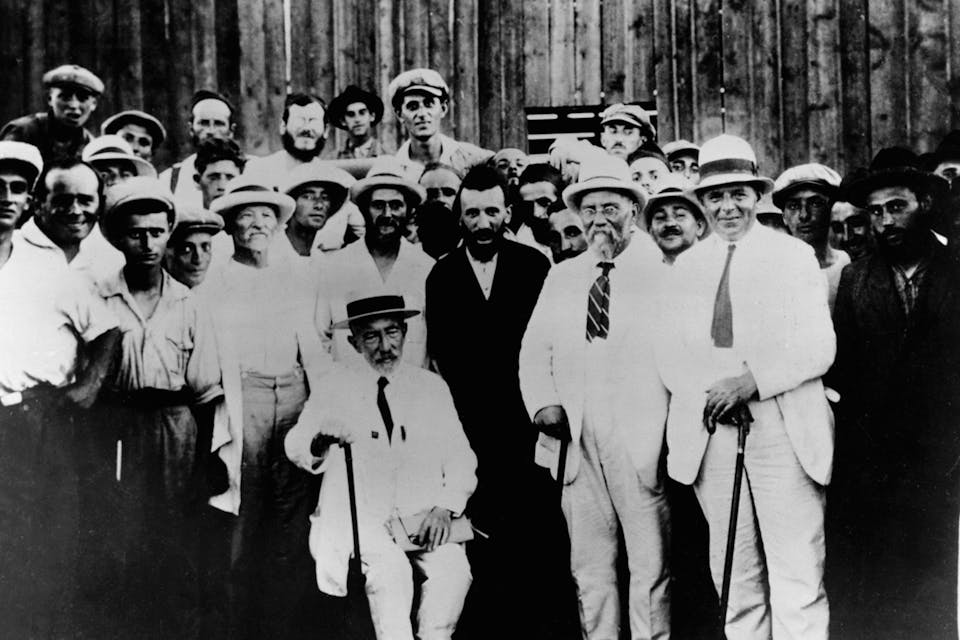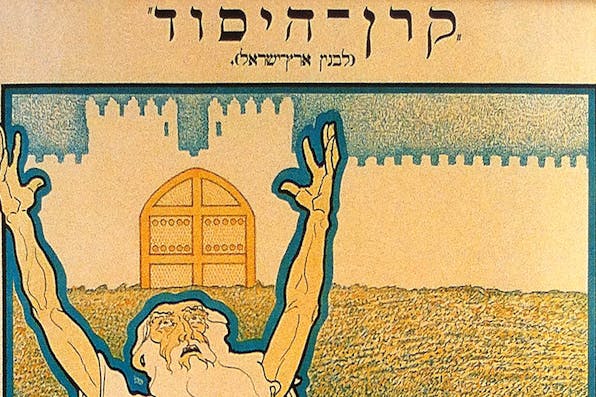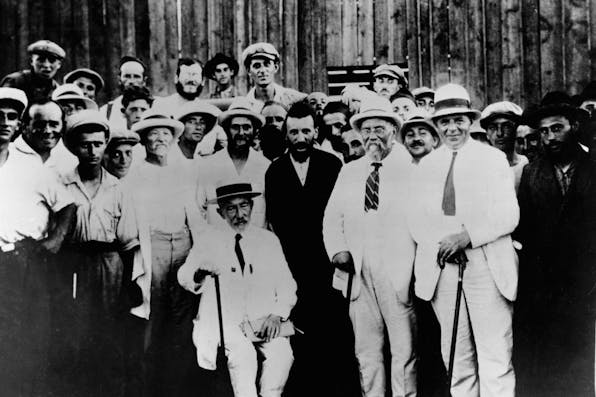
November 3, 2016
Why Ahad Ha’am Still Matters
Despite the failure of his cultural Zionism, the two main pillars of his thought remain central to Jewish life—and to arguments about Jewish life—today.
In his response to my essay, Allan Arkush is probably right in saying that Ahad Ha’am, were he to visit present-day Israel, would grumble about what he saw and heard. The country’s rough-edged popular culture; its inelegant demotic Hebrew; its strident politics; its powerful but petrified Orthodox rabbinical establishment; its unending rule over a Palestinian populace that does not wish to be ruled by it—all this and more would have irritated him. Of course, he might also have found, as Asael Abelman observes, much to rejoice in, beginning with the historical miracle of there being a Jewish state at all, but he was by nature a fault-finder. He had high standards and never thought that either human or Jewish nature required him to lower them.
And yet, as Arkush, Abelman, and Steven Smith all assert, one cannot dismiss Ahad Ha’am. His influence continues to be great, not so much because anyone still reads him (few do) as because the two main paradigms of his thought remain central to Jewish life: his vision of a thriving Jewish homeland co-existing with a flourishing Diaspora that is inspired but not superseded by it, and his ideal of a Hebrew culture in this land that maintains and transmits the religious, literary, and intellectual heritage of Judaism in a secularized or semi-secularized form. In agreeing or arguing with these paradigms, we are agreeing or arguing, whether we know it or not, with Ahad Ha’am. When I wrote my book Letters to an American Jewish Friend 40 years ago, attacking the first paradigm and defending the second, I did both while ignoring his having been their first coherent formulator.
Arkush cites an imaginative piece by Fanya Oz-Salzberger that brings back not only Ahad Ha’am but also Theodor Herzl and other early Zionist luminaries for a look at Israel today. Although I haven’t read her piece, the presence of Vladimir Jabotinsky as one of the traveling companions strikes me as a good choice on her part. The two men must have had some lively arguments. Not unjustly, Jabotinsky regarded himself as Herzl’s true heir among the Zionist politicians of his day. Like Herzl, he did not think the Diaspora had a viable long-term future, and like Herzl, too, he hoped that a Jewish state would absorb—or rescue, as he came to see it in the 1930s—as much of Diaspora Jewry as cared to survive and render the rest of it irrelevant. In a conversation with Ahad Ha’am in Tel Aviv shortly before the latter’s death in 1927, he said to him, as recorded by Ahad Ha’am’s secretary:



